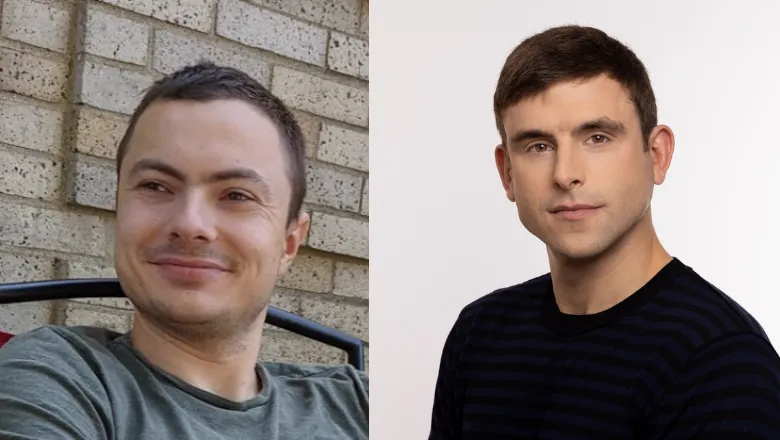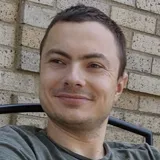I’m delighted that this ERC award will help me to attract top talent to tackle the mathematical work in the project and obtain the technology and resources needed to complete this research.”
Dr Petr Kravchuk
21 February 2023
King's mathematicians awarded competitive European Research Council grants
Dr Petr Kravchuk and Dr Benjamin Krause received the funding to further their cutting-edge research

Dr Petr Kravchuk and Dr Benjamin Krause, Lecturers from the Department of Mathematics, were awarded highly competitive European Research Council (ERC) Starting Grants. This funding will enable them to further their cutting research into Conformal Field Theories (CFTs) and point-wise ergodic theory.
Dr Petr Kravchuk’s project ‘Spectra of Conformal Theories: From Trajectories, Colliders, and Numerics’ focuses on Conformal Field Theories (CFTs) - mathematical objects that help explain some of the key theories underlining the laws of physics.
For example, they help describe what happens when water reaches the ‘critical point’ - a specific temperature and pressure where water and steam can no longer be distinguished from each other. They also describe the critical behaviour of certain kinds of magnets, as well as of many other physical systems.
Dr Kravchuk said:
“CFTs are key to further our understanding of the phenomenon of critical universality. The ERC grant will enable me to further my research into this fascinating area of theoretical physics. One of the goals of my project is to classify CFTs or, in other words, possible types of critical behaviour.”
CFTs also help further lines of inquiry in theoretical physics, including successfully combining general relativity with quantum mechanics. They can also serve as useful models to support complex theories such as those currently being studied at the Large Hadron Collider such as Quantum Chromodynamics. Another goal of this project is to use advanced mathematical theory combined with large-scale numerical computations, in order to better understand the mathematical structures that help explain these concepts in theoretical physics.
Dr Benjamin Krause’s award will enable him to further his research into pointwise ergodic theory - the branch of mathematics that studies the long-term average behaviour of complex systems, such how molecules behave in a gas or the interactions of vibrating atoms in a crystal.
Dr Krause said: “Pointwise ergodic theory studies the question of the long-term average behavior of independent `random' samplings of data in a confined environment. A lot of work has been done in understanding this asymptotic behavior in an average sense; the focus of my research is understanding this phenomenon at (essentially) every individual physical location.”
The research builds on Krause’s recent work, in collaboration with Mariusz Mirek , Rutgers University, and Terry Tao, University of California, Los Angeles (UCLA) looking at the capacity for the constructive/destructive interference of two data sets being sampled simultaneously along sparse sequences.
Dr Krause believes his line of inquiry will have deep implications for furthering mathematical fields outside of his own, such as combinatorics, harmonic analysis, and geometric measure theory.
“The goal of my project ‘Pointwise Convergence of Multiple Ergodic Averages’ is to deduce asymptotic behaviour along iterated sampling when the sequence of times ample is ‘sparse,” polynomially defined in particular. This method allows you to adjust the density and equidistribution-properties of data, which yields enormous analytical gain, for example it enables you to use a smaller data set to draw similar conclusions from sampling the data, as you would get from using larger set.”
Dr Benjamin Krause
The grant received by Krause and Kravchuk is funded by UK Research and Innovation via the ERC funding guarantee scheme. The European Research Council (ERC) funds outstanding researchers to carry out ‘high risk, high-reward research.’ The grants support emerging science talent to launch their most promising ideas. Part of the Horizon Europe programme, the European Research Council has awarded €636m in grants to four hundred and eight researchers across Europe.

